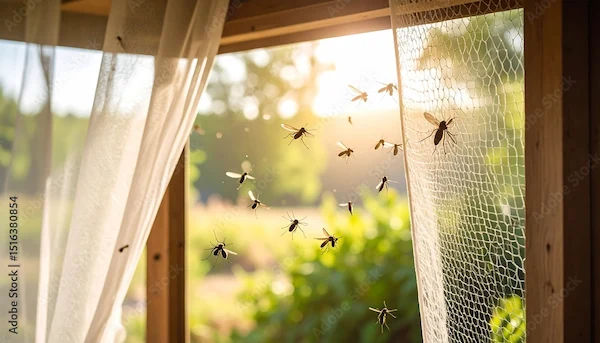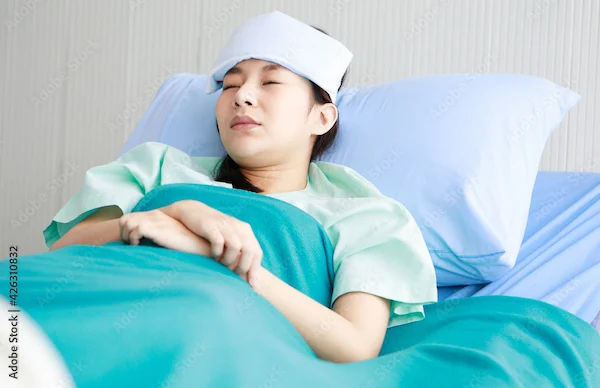How to Reduce Dengue Fever with Home Remedies?
Discover effective home remedies to reduce dengue fever naturally. Learn how hydration, nutrition, herbal treatments, and natural remedies can help manage symptoms and support recovery.

Written by Dr.Sonia Bhatt
Last updated on 3rd Jul, 2025

Introduction
Home remedies are a valuable addition to conventional medical treatment for dengue fever. They help in symptom relief, boost the immune system, and support faster recovery. Natural remedies such as hydration, herbal treatments, and proper nutrition can assist in maintaining strength and preventing complications. These approaches can be particularly beneficial when medical resources are limited, making home care an essential component of dengue management. This article explores the importance of home remedies in managing dengue fever and outlines various natural approaches that can complement medical interventions.
Understanding Dengue Fever
Dengue fever is a mosquito-borne viral infection that poses a significant health risk, especially in tropical and subtropical regions. The disease, transmitted primarily by the Aedes aegypti mosquito, can cause mild to severe symptoms, potentially leading to life-threatening complications if not managed properly. While medical treatment plays a crucial role in recovery, home remedies offer valuable supportive care to alleviate symptoms and boost overall well-being.
1. Causes and Transmission of Dengue
The dengue fever is caused by the following:
Dengue fever is caused by any one of four types of dengue viruses (DENV-1, DENV-2, DENV-3, and DENV-4).
The virus is not spread through direct human contact but through mosquito bites.
Dengue fever spreads through the following:
Dengue virus is primarily transmitted by the Aedes aegypti and Aedes albopictus mosquitoes.
When a mosquito bites an infected person, it becomes a carrier of the virus.
The infected mosquito transmits the virus to another person through a bite.
Once infected, a person can develop symptoms within 4 to 10 days.
Recovery from one type of dengue virus provides immunity only to that specific type, not to the other three.
Subsequent infections with different dengue virus types increase the risk of severe dengue fever.
2. Symptoms
Many people infected with the dengue virus experience no symptoms. However, when symptoms do occur, they typically appear 4 to 10 days after a mosquito bite and may resemble the flu.
Common symptom includes:
High fever (104°F or 40°C)
Severe headache
Muscle, bone, or joint pain (often called "breakbone fever")
Nausea and vomiting
Pain behind the eyes
Swollen glands
Skin rash
Most individuals recover within a week, but in some cases, symptoms can worsen, leading to severe dengue, also known as dengue hemorrhagic fever or dengue shock syndrome.
Symptoms of severe dengue (Life-Threatening Emergency) includes:
Intense stomach pain
Persistent vomiting
Bleeding from gums or nose
Blood in urine, stools, or vomit
Skin bruising due to internal bleeding
Rapid or difficulty in breathing
Severe fatigue, irritability, or restlessness
Severe dengue can cause shock, internal bleeding, organ failure, and even death. Warning signs of severe dengue often appear within the first two days after the fever subsides and require immediate medical attention.
3. Diagnosis
Diagnosing dengue fever can be challenging, as its signs and symptoms are often similar to those of other illnesses, such as chikungunya, Zika virus, malaria, and typhoid fever.
A doctor will typically ask about your medical and travel history, including details of any recent international trips, the countries visited, travel dates, and any potential exposure to mosquitoes.
To confirm a diagnosis, a blood sample may be taken and tested in a laboratory for evidence of infection with one of the dengue viruses.
The Role of Home Remedies
Home remedies can play a supportive role in managing dengue fever by helping to alleviate symptoms, boost immunity, and promote recovery alongside medical treatment.
1. Complementary Approach to Medical Treatment
Home remedies should not replace professional medical care but rather serve as supportive measures. They can help alleviate discomfort, reduce fever, and strengthen the immune system while medical treatments target the virus and its complications.
2. Benefits of Natural Remedies
The benefits of natural remedies includes:
Boosts Immunity – Strengthens the body's natural defence to fight the virus.
Reduces Fever – Herbal remedies like papaya leaf extract and tulsi help lower high fever.
Promotes Hydration – Coconut water and herbal teas prevent dehydration and restore electrolytes.
Eases Pain and Discomfort – Natural anti-inflammatory ingredients like ginger and turmeric help relieve muscle and joint pain.
Supports Platelet Production – Papaya leaf juice and goat milk are believed to help increase platelet count.
Aids Digestion – Herbal drinks like coriander and mint tea soothe nausea and improve digestion.
Provides Antioxidants – Fruits rich in vitamin C, such as oranges and pomegranates, help combat oxidative stress and speed up recovery.
Reduces Fatigue – Natural tonics like giloy (Tinospora cordifolia) help restore energy and reduce weakness.
Hydration and Fluid Intake
Maintaining proper hydration and fluid intake is crucial for recovering from dengue fever, as it helps prevent dehydration, supports circulation, and aids in flushing out toxins from the body.
1. Importance of Staying Hydrated
Dengue fever often leads to dehydration due to high fever, vomiting, and reduced appetite. Proper hydration is essential to maintain electrolyte balance and prevent complications such as dizziness and weakness.
2. Recommended Fluids and Drinks
The recommended fluids and drinks includes:
Coconut water: Rich in electrolytes, it helps maintain hydration levels.
Barley water: Detoxifies the body and supports recovery.
Fresh fruit juices: Pomegranate, guava, and kiwi juice boost immunity and aid in platelet production.
Herbal teas: Tulsi or ginger tea can provide relief from nausea and fever.
Nutrition and Diet
A well-balanced nutrition and diet plan is essential for recovering from dengue fever, as it helps strengthen the immune system, boost energy levels, and support overall healing.
1. Foods to include in your diet Includes:
Leafy greens and papaya leaves to boost platelet count.
Protein-rich foods such as lentils, eggs, and lean meats to maintain strength.
Vitamin C-rich fruits like oranges, kiwi, and guava to enhance immunity.
2. Foods to avoid during dengue includes:
Caffeinated and alcoholic beverages that cause dehydration.
Oily and spicy foods that may irritate the stomach.
Processed and sugary foods that weaken the immune system.
Consult Top General medicine specialist
Herbal and Natural Remedies
Herbal and natural remedies can help manage dengue fever symptoms by boosting immunity, reducing inflammation, and supporting overall recovery alongside medical treatment.
1. Popular Herbal Options
Since ancient times, medicinal herbs have played a significant role in treating various illnesses, including dengue fever. Some well-known herbal remedies that may help manage dengue symptoms and boost immunity include:
Papaya Leaf Juice – Known for its ability to increase platelet count and strengthen the immune system.
Giloy (Guduchi) Juice – Enhances the body's resistance to infections and helps combat viral illnesses.
Neem and Basil Leaves – Possess strong antiviral properties that aid in fighting the dengue virus.
Kalmegh (Andrographis Paniculata) – An effective antiviral herb that helps prevent the worsening of dengue symptoms.
Dudhi (Asthma Weed) – Supports platelet production and boosts immunity, aiding recovery.
Goldenseal – A North American herb with antiviral properties that can help relieve mild dengue symptoms like fever, nausea, and headaches.
Karela (Bitter Melon) – Studies suggest that karela may have antiviral effects against dengue and can be consumed as a vegetable or juice to strengthen immunity.
2. Potential Benefits and Precautions
Potential benefits and precautions of herbal and natural remedies includes:
While herbal remedies can aid recovery, excessive consumption should be avoided.
Always consult a doctor before using herbal treatments, especially during pregnancy or in severe cases.
Rest and Recovery
Dengue weakens the body, making rest crucial for healing. Proper sleep and relaxation reduce fatigue and improve immune function.
To managing fatigue and weakness:
Engage in light activities to avoid excessive exertion.
Eat small, nutritious meals frequently to sustain energy levels.
Stay in a cool and mosquito-free environment to aid comfort and recover
Over-the-counter Solutions
Over-the-counter solutions can help relieve dengue fever symptoms such as fever, pain, and dehydration, but they should be used with caution and under medical guidance. Some of the OTC medications which should be taken and avoided are as follows:
Analgesics are recommended to manage fever and pain.
NSAIDs (Non-Steroidal Anti-Inflammatory Drugs) should be avoided due to their potential to cause severe bleeding.
Unverified herbal supplements may interact negatively with prescribed medications.
Precautions and Monitoring
Taking proper precautions and closely monitoring symptoms are essential in managing dengue fever, preventing complications, and ensuring a smooth recovery.
1. When to Seek Medical Attention?
It is important to seek medical help if symptoms worsen or if warning signs of severe dengue appear, as timely intervention can prevent complications. The key warnings include:
Persistent high fever (above 102°F) for more than 2 days.
Severe abdominal pain, persistent vomiting, or signs of internal bleeding (e.g., blood in vomit or stool).
A sudden drop in blood pressure leading to dizziness or fainting.
2. Monitoring Symptoms at Home
The symptoms that needs to be monitored at home includes:
Regularly check body temperature and platelet count.
Watch for any signs of worsening symptoms and act promptly.
Keep a record of hydration and food intake to ensure proper recovery.
Conclusion
Dengue fever is a serious illness that requires medical attention, but home remedies play an essential role in recovery. Hydration, proper nutrition, herbal treatments, and adequate rest can significantly support the healing process. While home care helps manage symptoms, it is vital to seek medical advice if severe symptoms develop. By adopting preventive measures and using natural remedies wisely, individuals can improve their chances of a quicker and healthier recovery from dengue fever.
Consult Top General medicine specialist
Consult Top General medicine specialist

Dr. Hrishikesh Shivakumar
General Physician/ Internal Medicine Specialist
9 Years • MBBS, MD
Bangalore
Apollo 24|7 Clinic - Karnataka, Bangalore

Dr. Lakshmi Sindhura Kakani
General Physician/ Internal Medicine Specialist
10 Years • MBBS, MD (General medicine)
Visakhapatnam
Apollo 24|7 Clinic - Andhra Pradesh, Visakhapatnam

Dr. Lakshmi Sanjitha Kakani
General Physician/ Internal Medicine Specialist
6 Years • MBBS, MD (General Medicine)
Visakhapatnam
Apollo 24|7 Clinic - Andhra Pradesh, Visakhapatnam

Dr. Syed Yaseen Ahmed
General Practitioner
7 Years • MBBS
Hyderabad
Apollo 24|7 Clinic, Hyderabad

Dr. Anshul Maheshwari
General Practitioner
5 Years • MBBS
Lucknow
Apollo 24|7 Clinic - Uttar Pradesh, Lucknow
Consult Top General medicine specialist

Dr. Hrishikesh Shivakumar
General Physician/ Internal Medicine Specialist
9 Years • MBBS, MD
Bangalore
Apollo 24|7 Clinic - Karnataka, Bangalore

Dr. Lakshmi Sindhura Kakani
General Physician/ Internal Medicine Specialist
10 Years • MBBS, MD (General medicine)
Visakhapatnam
Apollo 24|7 Clinic - Andhra Pradesh, Visakhapatnam

Dr. Lakshmi Sanjitha Kakani
General Physician/ Internal Medicine Specialist
6 Years • MBBS, MD (General Medicine)
Visakhapatnam
Apollo 24|7 Clinic - Andhra Pradesh, Visakhapatnam

Dr. Syed Yaseen Ahmed
General Practitioner
7 Years • MBBS
Hyderabad
Apollo 24|7 Clinic, Hyderabad

Dr. Anshul Maheshwari
General Practitioner
5 Years • MBBS
Lucknow
Apollo 24|7 Clinic - Uttar Pradesh, Lucknow



